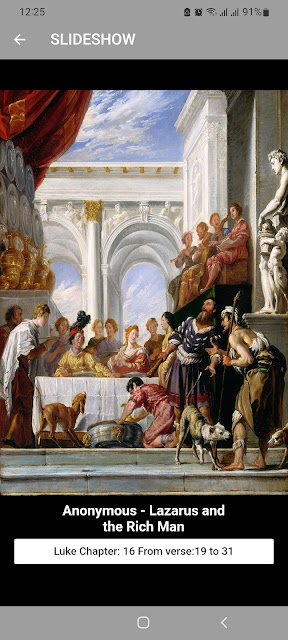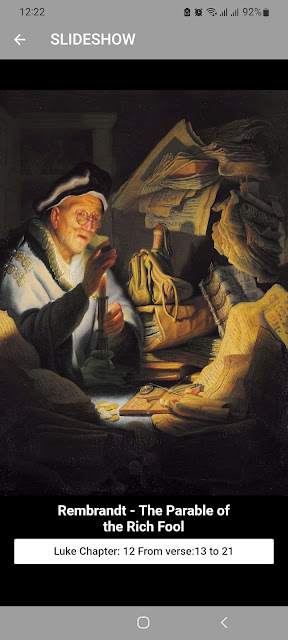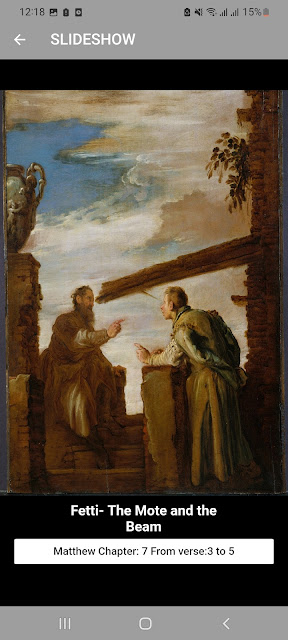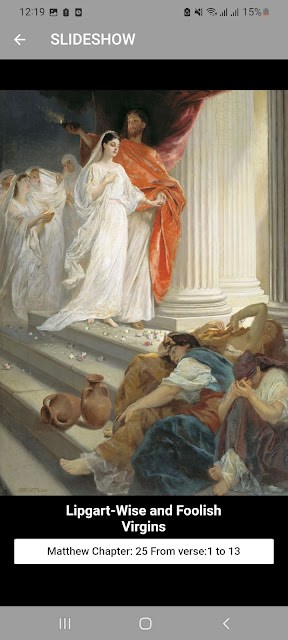We follow from where we left off in the previous post on Parables in the Bible and their meanings and expound upon each as best we can.
m) The Pharisee and tax collector (Luke 18:9-30)
It warns us to be careful about self-righteousness and unfair judgment. The Pharisee presumes his righteousness and condemns the publican.
We should instead pray for mercy, for no man is without sin. We also cannot judge anyone, since it is only God that sees in the deepest parts of our hearts and soul. A man can never truly know enough about another to judge him.
Don't however be fooled. " Don't judge me" is a regular rebuttal in the world. But hey, who does not judge? We all do. But it is about the life choices we make. If somebody is an ass in your eyes, use your judgment and keep away. The parable is about asserting to oneself the role of judge jury and executioner; that is God's abode and not ours!
n) The talents, Matthew 25:4-20
The gifts we get from God are for the well-being of all mankind, and certainly not just for yourself. To whom much is given, much is expected.
If you serve only yourself, what was the purpose of the gift? The multiplication is not about hard work and laziness, but the number of souls you brought back to Christ using your various gifts; genetic, material, intellect, etc
o) Lazarus and the Richman, Luke 16:19-31
If you cannot take care of your immediate neighbour, whom can you possibly take care of? We start with our nearest and dearest then extend to Christians at large and the world in general.
Bronnikov- Lazarus and the rich man, Luke 6:19-31
Our purpose in life is a love of God and one of neighbour. If you cannot lift a hand to help those around you, then what was the purpose of your being gifted with the talents that have led to your wealth? Yes, you may have worked hard, but the ability to do so, does that not come from on high? Don't be stupid, use your wealth to gain spiritual merits in lofty heights.
p) Fetti The rich fool Luke 12:13-21
The two great commandments as stated by our Lord and well versed by the Jews in the Pentateuch was a love of God and a love of Neighbour. This is why we live, to learn and to practice these.
All material possessions we shall leave here to others, however our acts of love, compassion, gentleness, self-sacrifice, and the like, we shall carry with us.
Material things are simply a means to a spiritual end; one however needs to be so inclined.
The parable speaks of a fool of a rich man. Selfish In his aggrandizement of wealth and self-serving by not sharing or alleviating the difficulties of his neighbour with his wealth. Our Lord does not speak against wealth, but he does ask us to remember who gave us the talents for its accumulation, lest we become proud and miserly.
q) Fetti - The Mote and Beam
Let us be careful not to judge, for few if any of us sees the sin residing in us, and we certainly can't see the heart of the other. Be discerning (choosing to associate or disassociate), but leave judgment to God. The issue of judgment is many times used wrongly, suggesting that Christ demanded that we not judge at all. This is untrue.
Our Lord uses overstatement and hyperbole to ensure his teachings remain in our minds. For example, he did not expect anyone to cut off their hands or remove an eye; he was simply emphasizing the gravity of the lessons
.
In the case of care in judgment, he was referring to sanctimonious self-righteousness. Always start from the premise that we are all sinners and when you judge with a view to correcting, you need to bear that in mind. Discernment and judging others is a normal activity. You are expected to make calculated decisions daily based on your personal discernment and judgments.
r) Fetti- The Unmerciful Servant, Matt 18:21-35
This is a wonderful parable, that teaches humility. We ask for God's pardon for our trespass, but fail to pardon others for theirs to us. How dare you?
It is so easy to be self-righteous, and judge others to be lesser, but we forget that we all rely on the mercy and grace of the Father.
The Lord's prayer asks our Father to pardon us as we pardon others. It is only a fool, full of pride and self-love that ignores the quid pro quo aspect of mercy.
s) Lipgart- The Wise and foolish virgins, Matt 25:1-13
Always be prepared, for we neither know the day nor the hour of His return.
The easiest way to do this is to have a Jesus World view at all times. Steep yourself in his teachings, regurgitating them in your mind at all times. Eventually, you will live his teachings as a matter of course.
The teachings of our Lord are invaluable. I pray that more and more people discover them.
It's a funny thing, but for much of my life, I always thought that the secrets of our lives on earth are found in old and rare books carefully stored in the Vatican Library. As one of my bucket lists, I hoped to visit and seek them out. God was however merciful by opening up my eyes to the teachings of our Lord and Saviour Jesus, the Messiah.
You need not look further, his teachings are the secret to life both here on earth and in the hereafter. His teachings are indeed a pearl of great price, priceless yet freely
Christ upended the understanding of the social order, by telling his disciples that to understand him, they should have faith as little children have faith, even if they do not understand. Children were always on the lowest rung of society, unlike today where their rights are zealously guarded.
We continue in the next post
Enjoy!









